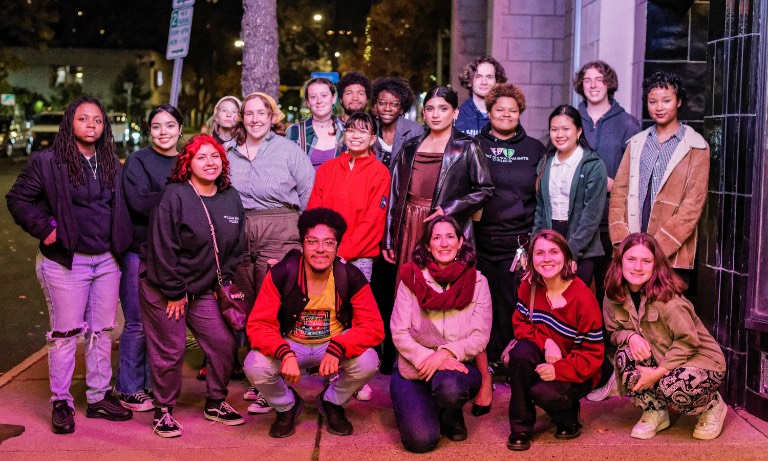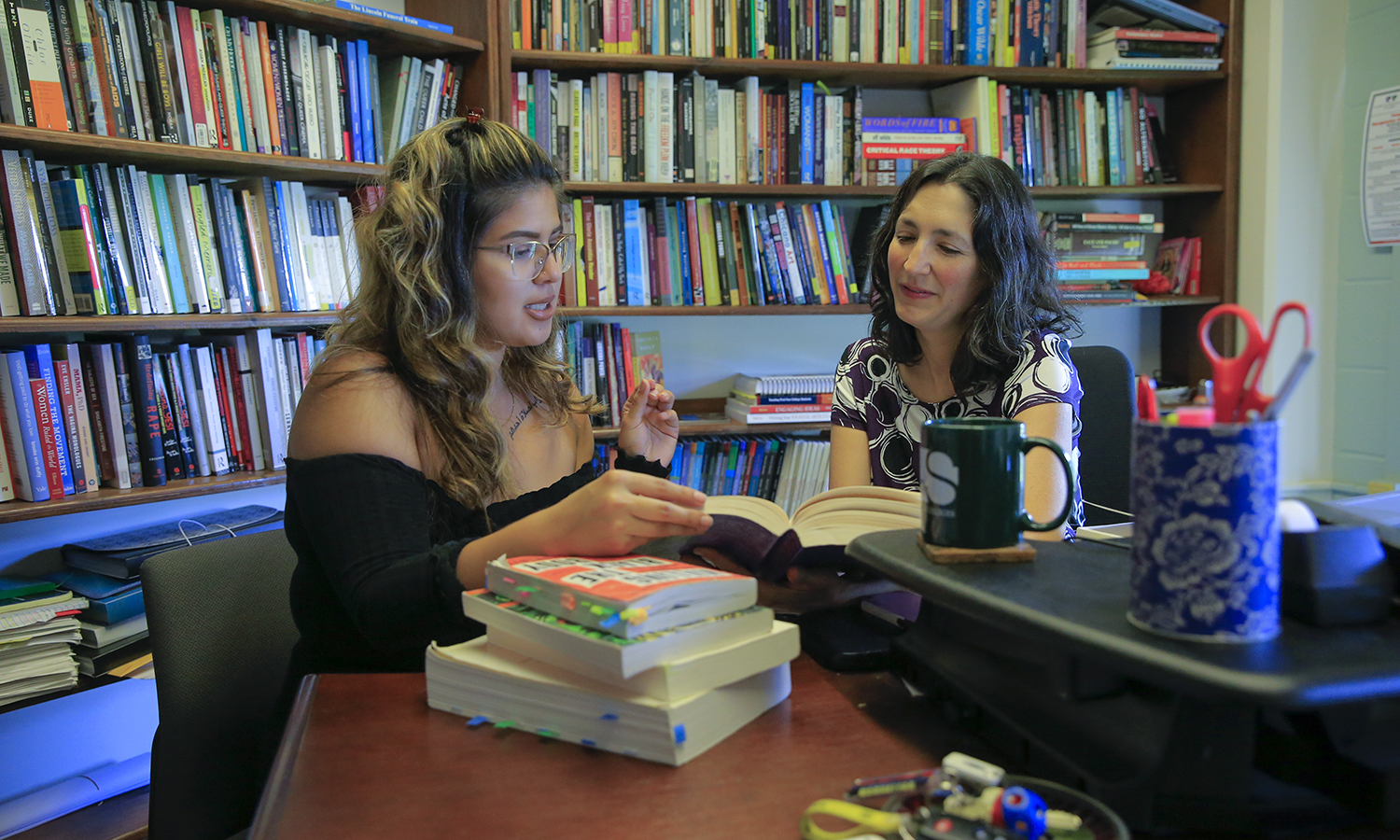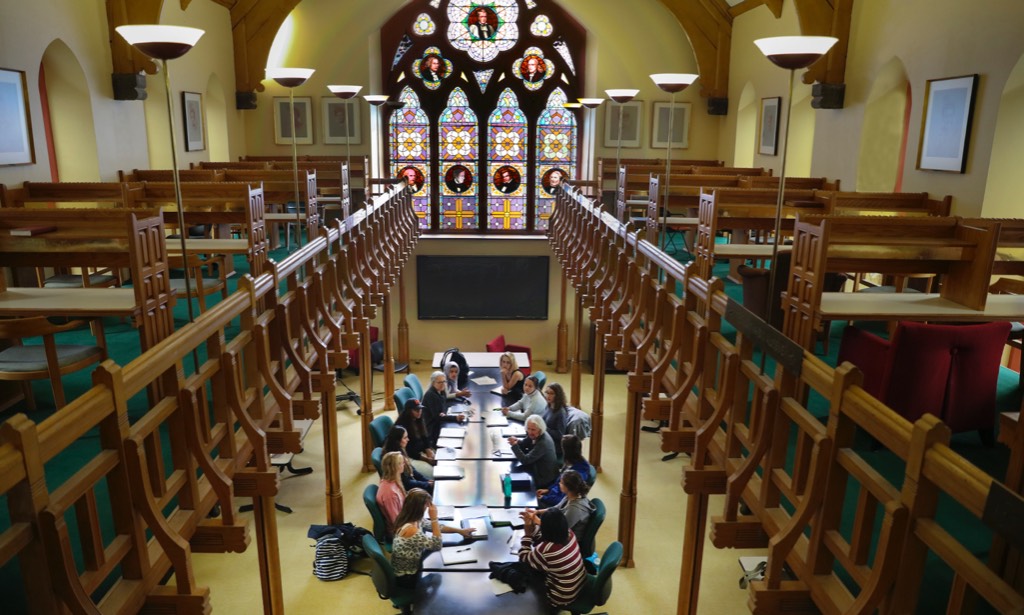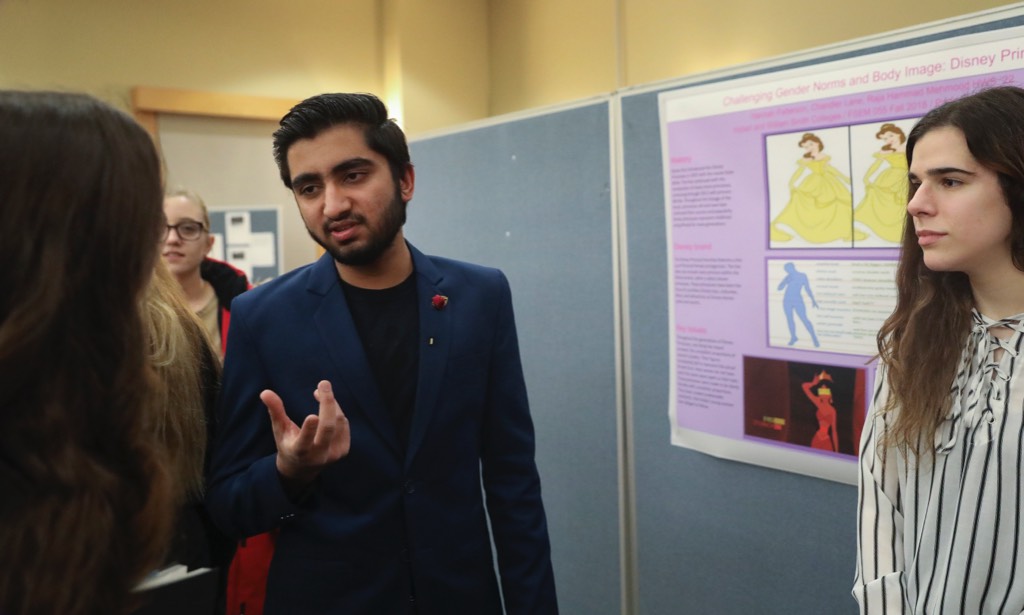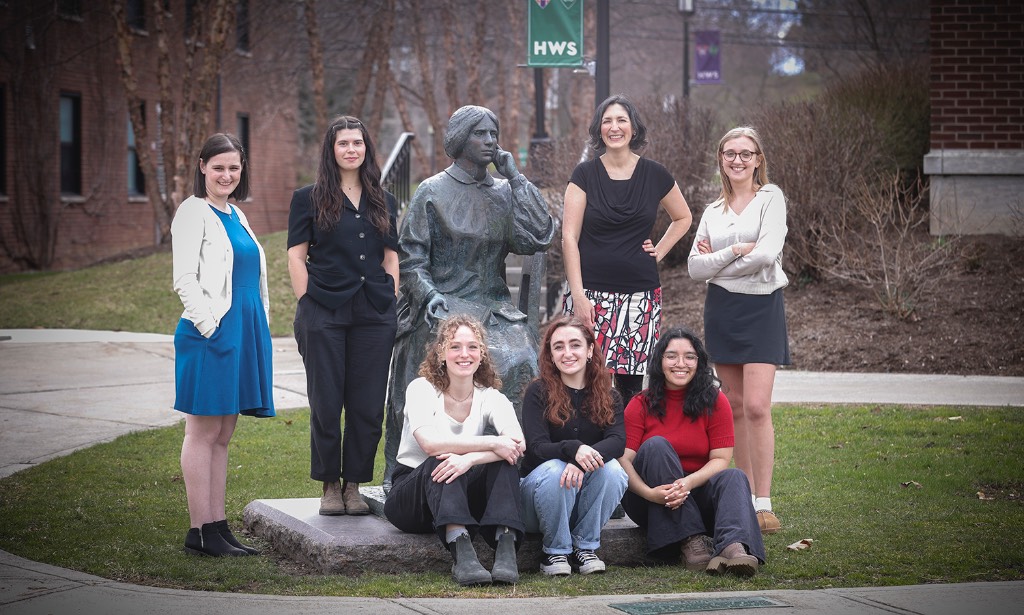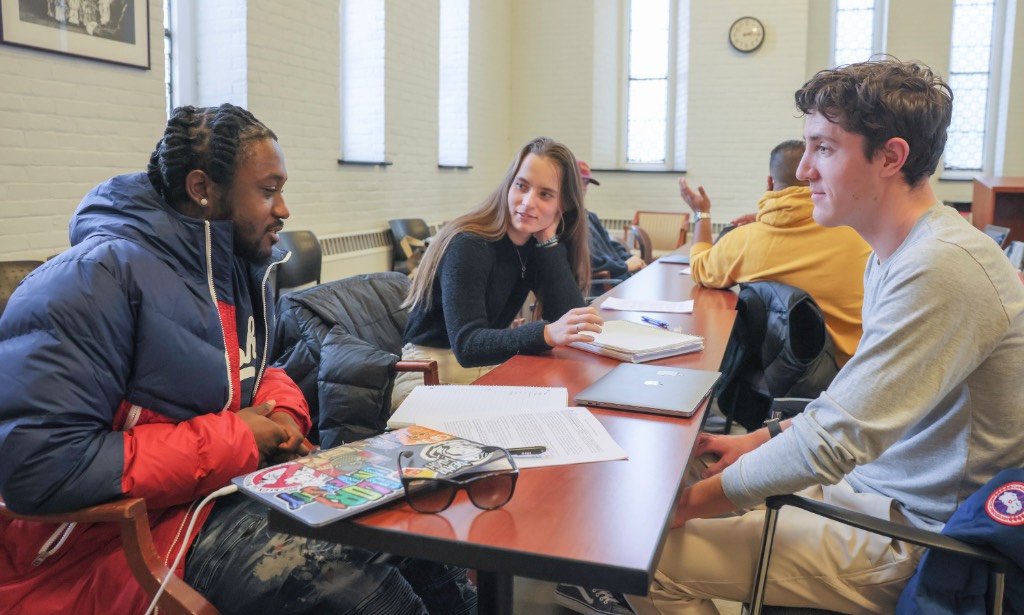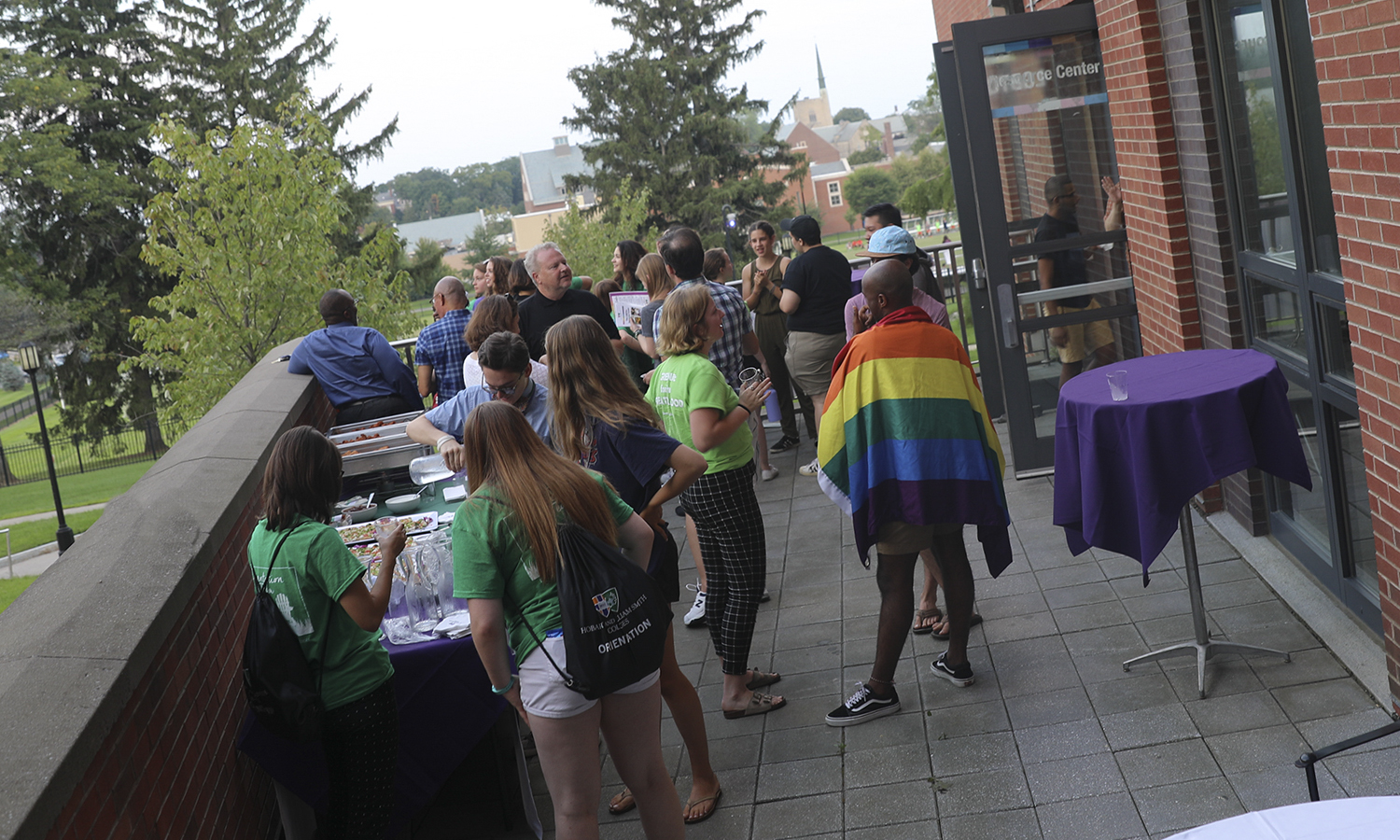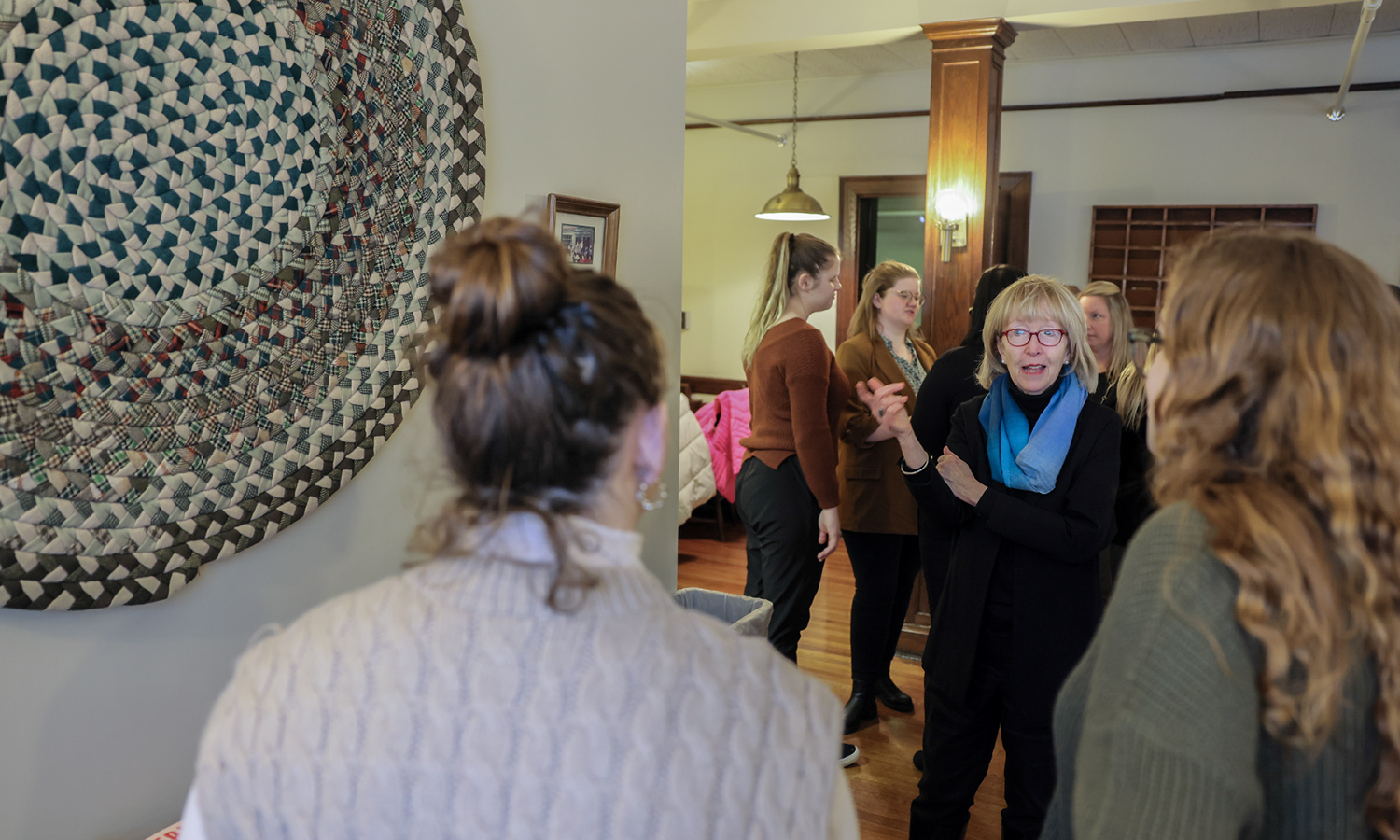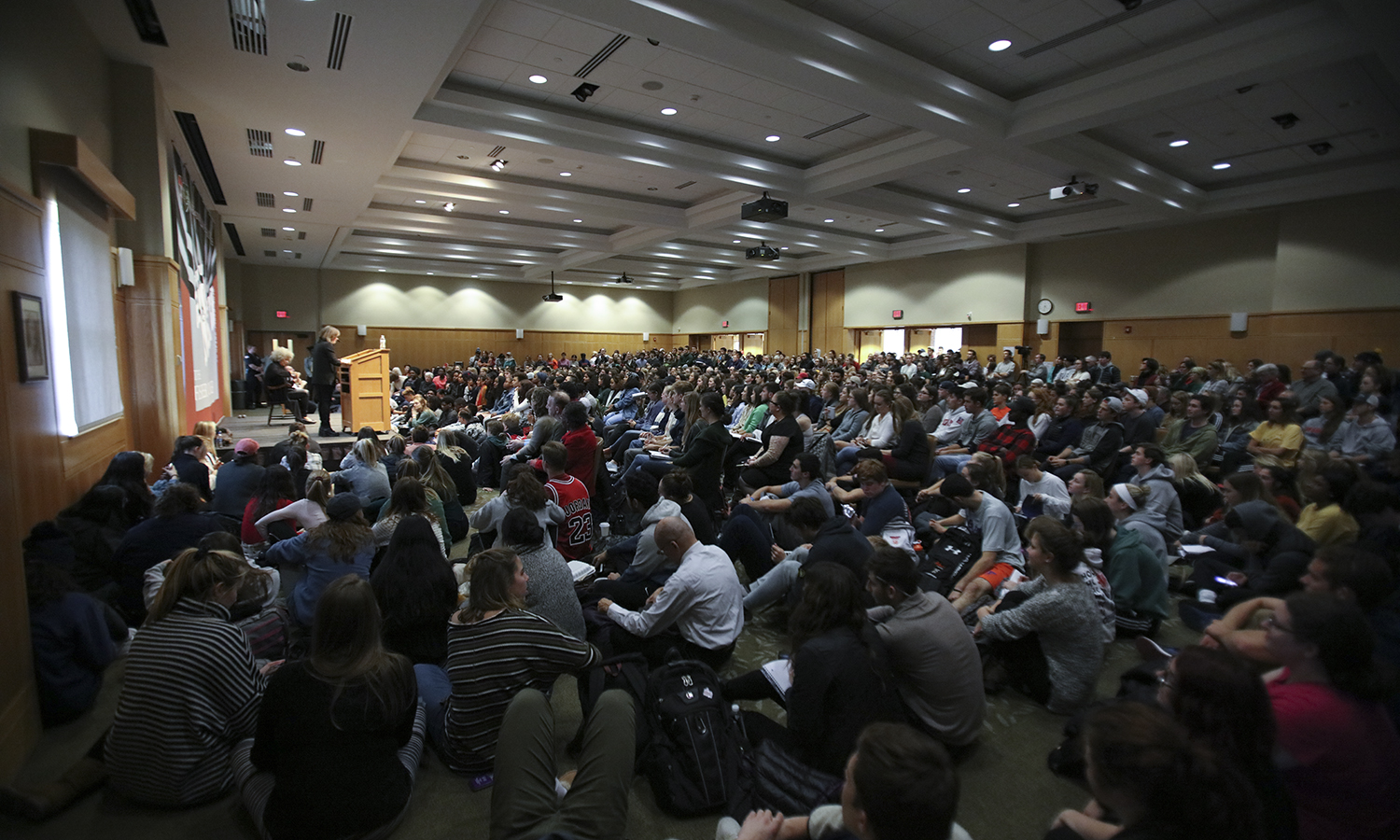Explore your own interests in topics of gender, sexuality, power and more through the department's multi-disciplinary courses.
Courses include:
gsij 100 introduction to gender, sexuality, and intersectional justice
Analyze the notion that sex, gender, sexuality, ability, race, and other categories of identity shape the social world in a myriad of ways, from how we organize our families and communities and how we spend time, to how we conceptualize the self and make meaning, to how we interact with our environment and create and re-create the body.
gsij 213 Transnational Feminisms
Investigate how gendered bodies travel, perform, and are understood in a wide variety of national, diasporic, and global media contexts, from theater and film, to politics and popular culture.
gsij 247 History, Psychology, and Feminism
Examine the intersecting stories of psychology and feminisim, from early case studies of hysteria and spiritualism through to mid-century depictions of the "mommy pill," "how the clinic made gender" and to late twentieth and early twenty-first century concerns around gender, race and bodies.
gsij 250 chicana feminism and visual culture
Discover Chicana feminism, from the emergence of Chicana as an identity category and its challenges to Chicano and feminist activism and the radical ways Chicanas have employed visual, performance, and graphic arts as a means of educating and catalyzing social change.
gsij 300 Who's Afraid of Gender? questions of freedom & intersectional feminisms
Engage in matters of and movements for freedom, equality, justice and liberation through intersectional feminisms’ long history of thinkers and theory.
gsij 305 food, feminism, and health
Explore a variety of topics arising at the intersection of food, health, and the body, including agricultural sustainability, genetically modified foods, local food activism and nutrition and health policy.

